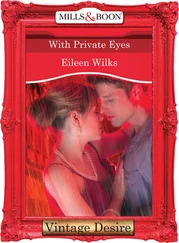“Sounds pretty darn saintly,” said Milo.
Anger tightened the priest’s face. He struggled to fight it and managed to put on a calm expression. But when he spoke, his voice was constricted. “He had nothing to do with that poor woman’s disappearance. I really don’t see why there’s a need to-”
“That poor woman has a name, ” said Milo. “Gina Marie Ramp.”
“I’m aware of tha-”
“ She’s been sticking to herself, too, Father. Cut off from worldly pleasures. But in her case, it’s not out of choice. For twenty years, since the day McCloskey’s hired creep destroyed her face, she’s been living up in a room, too scared to go out into the world. No parole for her, Father. So I’m sure you can understand why lots of people are upset at the fact that she’s disappeared. And I hope you’ll find it in your heart to forgive me if I try to get to the bottom of it. Even if it means inconveniencing Mr. McCloskey.”
Andrus bowed his head and clasped his hands in front of him. For a moment I thought he was praying. But he looked up and his lips were still. All the color was gone from his face.
“Forgive me, Officer. It’s been a hard week- two men died in their beds; two more were sent over to County General with suspected tuberculosis.” He cocked his head toward the men in the chairs. “We’ve got a hundred more heads than beds, no letup in sight, and the archdiocese wants me to raise a larger share of my own funds.” His shoulders dropped. “One searches for small victories. I’ve been trying to think of Joel as one.”
“Maybe he is,” said Milo. “But we’d still like to talk to him.”
The priest shrugged. “Come, I’ll take you to him.”
He’d never asked to see ID. Didn’t even know our names.
***
The first door in the hall led to an enormous dining hall where food smells finally overtook the stink of unwashed bodies. Wooden picnic tables covered by peacock-blue oilcloth were arranged in tandem, creating five long rows. Men sat hunched over their food, cradling their plates protectively. Prison dining. Spooning and chewing nonstop with all the joy of wind-up toys.
Along the back wall was a steam table fronted by a glass partition and aluminum counter. Men were lined up holding their plates out, Oliver Twist style. Three figures dressed in white shirts and aprons and hairnets ladled out food.
Father Andrus said, “Wait here, please,” and we stood by the door as he walked behind the steam table and said something to the middle server. Still working, the man nodded, handed his ladle to the priest, and stepped backward. Father Andrus began distributing food. The man in white wiped his hands on his apron, stepped around the table, through the line, and came toward us.
He was about five five, with a stoop that robbed him of an inch he couldn’t spare. The apron reached below his knees and was stained with food. He shuffled, barely raising his feet from the linoleum, and his arms remained at his sides as if glued there. Strands of white hair straggled from under the hairnet and adhered to a pasty, moist forehead. The face below was long and sallow, thin yet flabby. An aquiline nose had conceded defeat to gravity. White eyebrows. No fat under his chin, but a flap of loose flesh shook as he came closer. His eyes were hooded, dark, deep-set, very tired.
He walked up to us, expressionless, and said, “Hello,” in a flat, phlegmy voice.
“Mr. McCloskey?”
Nod. “I’m Joel.” Listless. Open pores on nose and cheeks. Deep crevices flanking a down-turned, dry-lipped mouth. Eyes nearly shut under the heavy lids, yellowish scleras surrounding nearly black irises. I wondered when he’d last had a liver-function test.
“We’re here to talk about Gina Ramp, Joel.”
“She hasn’t been found.” A statement.
“No, she hasn’t. Any theories you’d like to share about what might have happened to her?”
McCloskey’s eyes shifted to one of the tables. Some of the men had stopped eating. Others cast covetous glances at the untouched food.
“Could we talk in my room?”
“Sure, Joel.”
He shuffled out the door and turned right into the corridor. We passed dormitories crammed with folding cots, some of them occupied, and a closed door marked INFIRMARY. Moans of pain filtered through plywood and echoed along the hall. McCloskey turned toward the sound, briefly, but didn’t break step. Redirecting his gaze forward, he shuffled toward a brown-painted staircase at the back of the hall. The treads were covered with hard rubber, and the banister felt greasy.
We followed his steady, slow climb up three flights. Now the disinfectant smell triumphed.
Just off the landing on floor three was another closed door taped with a piece of shirt cardboard. JOEL was written on it in black marker.
The knob had a keyhole, but he turned it and the door opened. He held it and waited for us to enter.
The room was half the size of Gina Ramp’s closet- no more than eight by eight, with a cot covered by a gray wool blanket, a wooden nightstand painted white, and a narrow three-drawer, wood-grain chest. A Bible sat atop the drawer, along with a hot plate, a can opener, a cellophane-wrapped cracker-and-peanut-butter combo, a half-empty jar of pickled beets, and a tin of Vienna sausage. A calendar painting of a haloed Jesus looked down approvingly on the cot. A yellowed, fly-specked shade was half drawn on a single barred window. Beyond the bars was a wall of gray brick. Light came from a bare bulb in the center of a ceiling spotted with mildew.
Barely enough room to stand. I felt like holding on to something but didn’t want to touch anything.
McCloskey said, “Sit. If you want.”
Milo looked at the cot and said, “That’s okay.”
The three of us remained standing. Close together, but miles apart. Like subway straphangers resolute upon isolation.
Milo said, “Any theories, Joel?”
McCloskey shook his head. “I’ve thought about it. A lot. Since the other police were here. I hope what happened is she got well enough to go out by herself and…”
“And what?”
“And liked it.”
“You want the best for her, do you?”
Nod.
“Now that you’re a free man and the state can’t tell you what to do.”
A faint smile formed on McCloskey’s pale lips. The corners of his mouth were crusted with something white and flaky.
“Something funny, Joel?”
“Freedom. That’s long gone.”
“For Gina, too.”
McCloskey closed his eyes, opened them, sat heavily on the cot, removed his hairnet, and rested his brow in one hand. The crown of his head was bald, the hair around it white and gray, cut short and spiky. It might have looked fashionable on an eighteen-year-old Melrose marauder. On an old man it resembled exactly what it was: a do-it-yourself job.
Old man.
Fifty-three.
He looked seventy.
“What I want doesn’t matter,” he said.
“Not unless you’re still after her, Joel.”
The jaundiced eyes squeezed shut again. The neck-flap trembled. “I wasn’t- No. I’m not.”
“Not what?”
McCloskey held the hairnet with both hands, fingers poking through the mesh. Stretching it. “After her.” A sub-whisper.
“Were you starting to say you never were after her, Joel?”
“No. I…” McCloskey scratched his head, then shook it. “It was a long time ago.”
“Sure was,” said Milo. “But history has a way of repeating itself.”
“No,” said McCloskey, very quietly but with force. “No, never. My life is…”
“What?”
“Over. Everything’s out.”
“What’s out, Joel?”
McCloskey put one hand on his gut. “The fire. The feelings.” The hand dropped. “All I do is wait.”
Читать дальше












